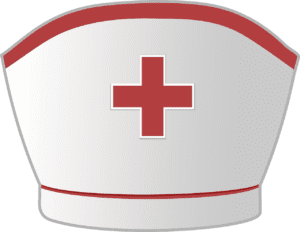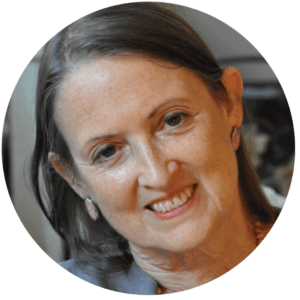 In Reiki Shalala, I shared details of a disappointing conversation I had with Donna Shalala, former secretary of Health and Human Resources. Susan Alger of Nashville, Tennessee, emailed a thoughtful response, which I asked to share with you.
In Reiki Shalala, I shared details of a disappointing conversation I had with Donna Shalala, former secretary of Health and Human Resources. Susan Alger of Nashville, Tennessee, emailed a thoughtful response, which I asked to share with you.
Susan’s been an RN for 20 years and is preparing her BSN in teaching. She’s been practicing Reiki for the past year. Susan wrote:
“My Reiki Master teacher forwarded your article about Donna Shalala and I am very proud of the efforts you are making to elevate Reiki to the medical community.
“It was disappointing to read of Shalala’s response to your questions, but I think you countered beautifully. As a RN and a level II Reiki practitioner, I appreciate both sides.
“A Johnson & Johnson commercial says, “I believe in science and medicine, but I also believe in stacking the deck.” Reiki does this. I have seen it. I have experienced it.
“The next step for Reiki, as I see it, is finding the science to back up what we already know. Otherwise, Reiki will be viewed as something akin to religion. This, of course, takes financial backing and credible studies.
“Perhaps the best place to start is teaching and encouraging nurses to practice Reiki self-treatment to help heal the dents a nurse takes everyday. In my experience, Reiki self-treatment promotes empathy with patients.
“Nurses, like teachers, are naturally inclined to care for others, and less diligent regarding self-care. Looking at the high burn-out rate in the nursing profession, we have to ask ourselves, how high a price are we paying for the privilege of caring?
“The ripple effect of nurse burnout radiates both outward, in our home lives, and inward, to our own immune systems. When nurses and other health care professionals practice Reiki self-care, we set an example for our patients and for other arms of the conventional medicine machine, including institutions that could fund and oversee credible studies of Reiki practice.
“A friend was offered Reiki at the Cleveland Clinic before and after valve replacement surgery. Given her weakened condition due to recently having a baby at 40 and the sudden onset of her symptoms during that pregnancy, there is no question in her mind that Reiki played a vital role in her rapid recovery. She made it home three weeks sooner than average.
“On a professional level, I am currently practicing Reiki on a bilateral knee replacement patient with an underlying heart condition. His perception of pain is immediately reduced, as is his anxiety. He is able to sleep soundly despite the pain, which facilitates his healing.
“I am seeing remarkable progress with his incisional healing. Four days out of surgery, his incisions have very little edema or redness that one usually sees with a post-op knee replacement, even after an hour of physical therapy. Twenty-four hours out, he could do a ninety degree bend and a zero degree press with both knees.
“Reiki treatment given to a patient in pain decreases the perception of pain, increases blood flow to the operative site, and relieves anxiety. I can see it, hear it, and feel it. It is measurable. Does Reiki treatment eliminate the need for pain medicine? No. But it stacks the deck.
“When I begin or end a long day and treat myself with Reiki, I feel deeply relaxed, centered, and less fractured from the chaos of the day. I can feel it, see it, and hear its effects in my voice, thought process, and my body. It doesn’t eliminate the need for my yearly check-up and unfortunately hasn’t replaced the coffee I drink, but it stacks the deck in my favor and benefits everyone around me.”
______________
Please subscribe here to receive my free ReikiUpdates!
My Reiki & Medicine Masterclass equips Reiki practitioners to collaborate with doctors, nurses, and other licensed healthcare professionals, including how to more effectively communicate the benefits. Even without sufficient research, there’s a plausible mechanism we can share, and ways of presenting the practice that are relevant to health care, and more credible, than the usual Reiki energy presentation.

I really appreciate Susan’s response. As a practitioner with Reiki for 15 years and teaching for the past six years, it’s so encouraging every time I meet or listen to someone whose experience broadens and deepens our understanding of Reiki. I cannot imagine being able to “describe Reiki” adequately, a condition that I respect and accept. It is simply so unique and so vast in possibility that we talk too much and practice too little. But I do keep in my “toolbox” all of these wonderful comments, like “stacking the deck” and more, that people can relate to comfortably. Added to a personal experience of Reiki, and the desire for information often transforms to a desire to understand through experience. One of local hospitals is developing a program now that brings nurses, Reiki and other energy healing methods together in an effort to discover the potential benefits to patient care. This is so exciting for our area! When the local diocese categorized Reiki in 2010 as “superstition”, our local Catholic hospitals were prohibited from offering Reiki, at least formally, deleting the word “reiki” from their brochures and offering other “energy healing” with acceptable religious tenets. Still, it is my sense that the time has arrived for people all over the world to appreciate the wisdom of experience when it comes to health and vitality, no matter what it is called. In all these years, Reiki still remains deeply satisfying and effective, becoming more so as it deepens me. Thanks for this blog, your continued efforts and your joy in Reiki. What great results so far!
And thank you for your kind words, Colleen. How wise you were to practice Reiki for 9 years before teaching.
It’s true that we cannot describe Reiki adequately, but we can describe the concrete elements of Reiki practice, such as hands-on, light touch, clothed recipient lying or sitting comfortably. This is one of the points that we discussed in the Talking Reiki: What to Say? webinar. People can still register for the recording https://bit.ly/talkReiki.
Agreed, Pamela, on describing the practice, rather than even attempting to coalesce Reiki itself into a list of descriptions. I am thankful that Reiki is, to me, a living example of a bridge connecting spirituality and physicality for greater well being in so many ways; that some aspects are clearly measurable, while others are best left to the fluidity of the countless fields within which it exists and IS. After all is said and done, practice! :) It’s a joyful “problem” to have, and the gains being made in these times are ultimately beneficial to all. P.S. I’ll be sure to register for the recording. I was unable to be present during the call.
Susan, Thank you for your post. It is a very timely read for my family. My mother fell down the stairs a couple of weeks ago and broke her collarbone in 4 places. She has had surgery and is managing her pain in addition to her anxiety over the experience and the healing process. The first night after she came home from the ER, I offered her a Reiki treatment and could see her deeply relax. She frequently comments on how the daily treatments are helping her relax and sleep and thinks she is taking fewer pain pills as a result.
Reading this blog over time has also attuned me to the importance of my self-care as the caregiver. In addition to my mother, I am taking care of my two little girls. Each day I make sure I take time to give myself at least one full Reiki treatment to maintain my own equilibrium and only give treatments when I feel strong myself. It is challenging sometimes to say no when I know that I am spent, and liberating as well. ~ Janine
“The next step for Reiki, as I see it, is finding the science to back up what we already know. Otherwise, Reiki will be viewed as something akin to religion…”
Yes, but the way Reiki is explained by Pamela falls squarely within the field of spirituality, and some might say faith. Add some organizational structures to it and in no time one will have a Reiki as a religion with all its trappings (and benefits).
Peter, religion and spirituality are entirely different.
Religion requires adherence to dogma and involves a social and some might say political organization.
Spirituality is an inherent part of a human being, a source of profound personal resource, that inner place in which we experience meaning and where we work out our relationship to ourselves, and to life itself.
Spiritual practices such as Reiki and meditation help people connect with their own inherent spirituality, without requiring adherence to any belief system. Spiritual practices can be used within the context of a religion by those who choose, and are equally useful to people without a religious affiliation.
Also, I do not presume to explain Reiki, but rather to describe Reiki practice. Mikao Usui was the founder of this practice and he saw it as a spiritual practice.